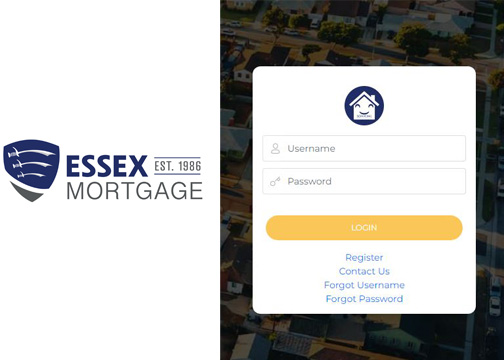How Much Personal Loan Can I Get? Your eligibility for a personal loan is often determined by several variables, including your income, debt-to-income ratio, and credit score. While the maximum loan amount for personal loans varies depending on the lender, it typically ranges from $500 to $100,000. You can be qualified for a loan that exceeds your needs in some circumstances. Make sure you don’t borrow more than you can manage by determining how much you can afford to repay every loan before accepting it.

How Much Personal Loan Can I Get?
Generally, personal loan amounts might be as low as $1,000 or as high as $100,000. Lender to lender differs in the precise range. For instance, some of the greatest providers of personal loans include those offering loans between $1,000 and $50,000, $2,000 and $30,000, and $5,000 and $100,000. New borrowers often take out loans for $8,200 on average, based on data from personal loans. Personal loans are a versatile option for borrowing money due to the large range of loan amounts that are offered.
You can borrow the exact amount of $2,000 if that’s all you need to pay for auto repairs. If your house requires some TLC, however, you can also acquire a $30,000 loan for home improvement. The minimal standards will vary depending on the lender. Meeting and surpassing the requirements is essential to be eligible for the maximum loan amount. A lender can conclude that you are unable to afford a higher loan if you do not at least meet the financial standards.
What Determines How Much Personal Loan I Can Get
A personal loan’s maximum loan amount is based on several variables. These are the factors that lenders look at most frequently and how they could affect your ability to borrow money.
Credit score
Your credit score is a measure of your creditworthiness; a high score indicates to a lender that you have a history of responsible debt management, while a low score suggests that you pose a greater risk as a borrower. For personal loans, lenders typically want a credit score of at least 670; however, each financial institution has different requirements.
Current debt
Your present debts, such as credit card balances, mortgages, and other loans, are taken into account by lenders. Your loan amount may be reduced if you have a lot of outstanding debt.
Earnings
Your salary level indicates that you can afford to pay back the loan. Since lenders are more sure you can make the monthly payments, greater income levels typically translate into higher borrowing limits.
The ratio of debt to income
Your monthly loan payments are compared to your gross monthly income to calculate your DTI. It is used by lenders to evaluate your ability to make loan repayments and handle monthly installments. Achieving a debt-to-income ratio (DTI) of 36% or less indicates that you make enough money to make further loan payments.
Work experience
For lenders, stable work and income are signs of health. A solid work history demonstrates to lenders your ability to repay the loan. A history of unemployment or frequent job changes could result in a smaller loan amount.
Loan purpose
The amount you can borrow may also depend on the loan’s intended use. Lenders might, for example, see loans for home remodeling or debt consolidation more positively than loans for luxuries.
How to Qualify for a Larger Loan
It is feasible to enhance your eligibility for a personal loan if you are approved for a smaller amount than what you need. Here are some suggestions for obtaining a greater loan amount:
Shop multiple personal loan lenders
While comparing offers from several lenders is usually a good idea, it becomes even more crucial if you want a substantial loan. To find out how much money each lender can offer, get prequalified with a few different lenders. This is a risk-free approach to rate shopping because prequalification shouldn’t affect your credit score (lenders do what’s called a “soft credit check” to get an idea of your credit score).
Choose a longer period of payback
Inquire about extending the payback period if you will soon require money. A longer payback period will result in a smaller monthly payment, which may persuade the lender to grant you the necessary loan. However, keep in mind that extended payback terms will result in higher interest over time.
Get a co-signer
Asking a loved one who has a solid credit history and high credit score to cosign the loan can be a good idea. Then, rather than using just one of your credit scores to determine eligibility, the lender will consider both of them. Recall that someone assumes risk when they agree to cosign a debt on your behalf. They are responsible for the money if you fail to make a payment. Get a cosigner only for loans you are certain you can repay.
Put up collateral when requesting a secured loan
As was previously said, if you’re asking for an unsecured loan (one without collateral), you may be able to enhance the amount of your loan if you provide security and receive a secured loan instead. Furthermore, if you are already providing collateral, providing something more valuable could increase the amount you are granted.
Pay off current debt
Ask the lender for an explanation if you aren’t granted the loan amount you need. Maybe your DTI is too high. In such a case, prioritize debt repayment before reapplying for a personal loan.
Boost your credit rating
Increasing your credit score can make it easier for you to be granted a bigger loan. Searching your credit report for errors is one of the quickest ways to raise your credit score. A mistake could be, for instance, that you took out a sizable loan that you never applied for or missed a payment that you didn’t miss. These could lower your rating. Obtain a complimentary copy of your credit report, review it for errors, and notify the credit bureau of any found.
Enhance your earnings
You can qualify for a bigger loan amount if you have a new job or start a side business. The benefits of a side gig are probably not immediately apparent, and it may take additional months to show a lender that your income has increased. However, if you want a loan for a major project like debt consolidation or house remodeling, it could be worthwhile to use the additional time to increase the amount in your bank account while you wait.
A personal loan can often be taken out for up to $100,000, however, the maximum amount you can borrow depends on several criteria. Maximum sums differ depending on your state and lender. To calculate the amount of your loan, lenders will take into account your payment history, credit history, and other variables.
Final Thoughts
Determine how much you need and how much you can afford to pay back each month before applying for a personal loan to prevent taking out a loan that is too big. Next, review your credit record and score to see how you will be perceived by lenders. To limit the lenders you can choose from, do your homework and become pre-qualified. Finally, gather the necessary documentation for a quick and easy personal loan application process, which is available online from numerous lenders.





